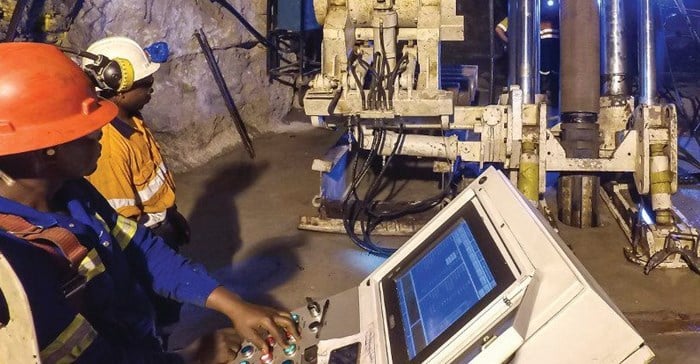
Top stories






More news


Marketing & Media
Ads are coming to AI. Does that really have to be such a bad thing?














These questions were posed by Mike Nel, regional manager for continental Africa at Immersive Technologies during Digital DRC Mining Week.
"It would be complicated and certainly overwhelming for them and possibly even for us, trying to explain it to them. And that is the thing about innovation and technology, it can be highly complex until it becomes mainstream.
“What we have seen with the Covid crisis is mining companies being forced to adopt technologies, specifically remote and virtual technologies, that they most likely would not have. Or at best taken a little while longer to get to the adoption process. Because of the urgency it is likely to have been a rushed process which makes for a very risky implementation.”
Amanda Zaina Matenda, mine planning services and support lead at Hexagon Mining said: “A lot of mines will have to include a pandemic in their risk assessment and increase their adoption of digital tools. Particularly if you have to implement social distancing, I think, we’ll see operating centres popping up closer to the mines with personnel processing data obtained from using digital solutions inside the mines. This is one way that I think that Covid-19 will change the industry.”
Kibali gold mine in the northeast of the DRC is a fully automated mine and an undisputed technology lead in the region. Jonathan Mbuluyo, instrumentation and automation specialist at the Kibali plant advised other mines to “get into technology now, when Covid happens next time, you can keep your business going.
"As a sector we need to move into automation and internet of things. This will entail upgrading internet infrastructure, especially in remote areas where some of the mines are.”
Nel siad the biggest barrier to adoption of technology is that it will put jobs at risk, although many employees will be upskilled which will increase their income. Furthermore: “technology will improve the safety and profitability of an organisation. Investment now in skills that are going to be needed in five, ten years’ time, when this technology is going to be more readily adopted, is going to be critical.”
The panel agreed that a mind shift was necessary in an organisation to adopt new technologies.
Mutenda said the mining sector in particular “was usually very late at picking up new trends” so a mind shift amongst the stakeholders “would be helpful to push to help people understand that new technologies were still doing the same things, just giving us better results, keeping us safer".
She added that other industries had adopted technologies a lot easier. “Mining technology changes so slowly. In my view the mining engineer of the future is a combination of traditional mining and digital skills.”
“And as a region we have skipped a lot of other steps, such as with cell phone technology, the same could happen with digitisation in the mining industry. It should become part of the curriculum for the next mining engineers.”
An expert panel discussed whether it was a good time for the mining sector to review health and safety measures given it was considered a catalyst for Covid-19?
Professor Dr Paul Mawaw Makan, senior national medical advisor at International SOS in DRC provided some of the latest facts and figures. “Ninety percent of the Covid cases in the DRC are in Kinshasa and the country is also facing cholera and Ebola outbreaks.”
There is furthermore political unrest in some areas of the country while there are selective protocols and different lockdown measures for each province due to different phases of the outbreak waves. "We must also be aware of three emerging societal risks when lockdowns and state of emergency relax namely social unrest and petty crime, anti-government sentiment and xenophobia.
“Health and safety are still a challenge in the mining sector and Covid has put an extra strain on it,” said Zaheera Soomar from the Canadian advisory firm, Principia. "Covid is a crisis that is presenting challenges and opportunities. There are longer and broader implications on our larger communities, not just the mines.”
According to John Wates, chairman of Fraser Alexander: "It is not the first time the mining industry has to deal with a pandemic, for example, malaria. The industry has to look beyond the workplace to reduce the spread of Covid and contractors should definitely be part of the compliance to health and safety standards of a mine.”